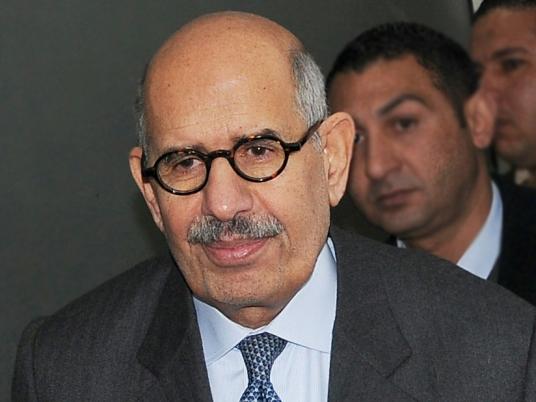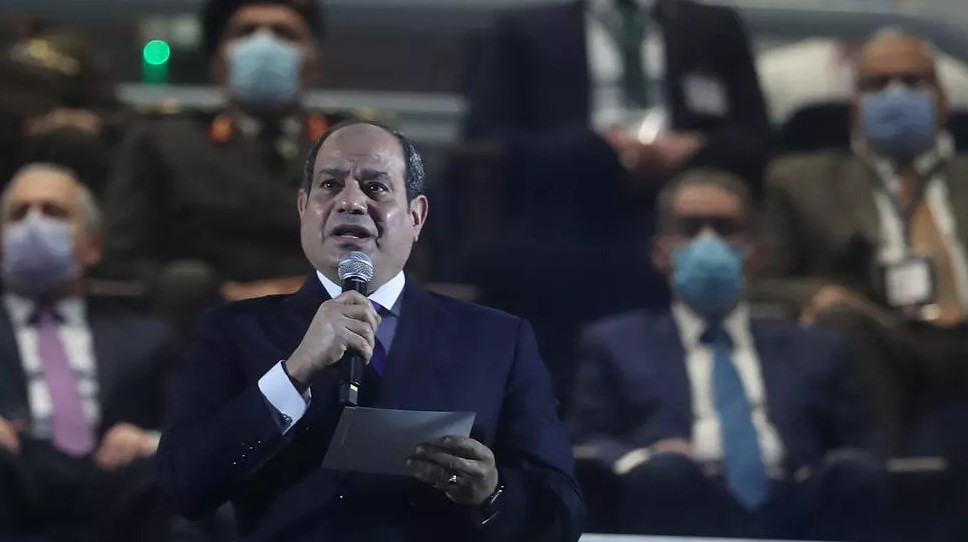The former UN nuclear chief turned Egyptian reform advocate strongly condemned on Thursday the alleged beating of one of his supporters by State Security agents, adding that the tactic would fail to "silence calls for change."
Mohamed ElBaradei said in a statement that the alleged beating of one of his supporters in southern Egypt was a blatant violation of the law and called for bringing the perpetrators to justice.
ElBaradei, a Nobel Prize laureate, is supported by young people and reformists who see him as a potential challenger to President Hosni Mubarak, who has been in power for 29 years.
Last month, ElBaradei formed the National Society for Change, a united front calling for constitutional changes to allow for freer elections. He urged the Egyptian public to join his campaign.
Taha Abdel Tawwab, a 36-year-old physiotherapist, volunteered to organize a public rally in the governorate of Fayoum last week in support of ElBaradei. The gathering never took place because of harassment that ElBaradei supporters blamed on security-backed thugs.
Lawyer Gamal Eid of the Arabic Network for Human Rights Information said Abdel Tawwab had been called in for questioning by State Security on Sunday. The officer questioned Abdel Tawwab about his role in organizing the rally and his reasons for supporting ElBaradei, Eid said. He was then badly beaten all over his body and kicked in the groin before being locked in a small room for hours, Eid added.
Abdel Tawwab, a member of the Muslim Brotherhood opposition movement, was let go the next morning. Upon his release, he went to the hospital where he began a hunger strike to demand that his abusers be brought to justice.
Eid said Abdel Tawwab was currently in an intensive care unit after having lost consciousness.
"I condemn in the strongest words the barbaric assault this innocent citizen has been subjected to," ElBaradei said in a statement from South Korea, which he is currently visiting. "These manners will not, under any condition, be able to scare or terrorize or silence our people."
He said that resorting to "such uncivilized means is a blatant violation of all laws and customs and subjects their perpetrators to being held accountable before local courts."
Abdel Tawwab’s lawyers filed a petition with the attorney general’s office complaining of torture and unlawful detention.
“The attorney general’s office on Thursday requested information about Abdel Tawwab’s case,” Eid said.
Asked if he thought the attorney general’s office would refer Abdel Tawwab’s case to trial, Eid expressed pessimism, pointing out that the Interior Ministry had denied any offenses had been committed by its officers.
On Wednesday, an unidentified security official denied that any torture had taken place or that Abdel Tawwab had even been summoned, according to AFP.
When ElBaradei arrived at the Cairo International Airport last month, security forces tolerated the more than 1000 supports who cheered him as a "national hero."
Political analysts and ElBaradei supporters alike believe that ElBaradei’s international stature bestows him–and his rapidly growing network of supporters–with a degree of protection.
"ElBaradei’s connections with various heads of states and his past role as director of the International Atomic Energy Agency would grant him a moral immunity to bash the [potential] suppression of the regime," Hassan Nafaa, coordinator of the Egyptian Campaign against Presidential Inheritance, wrote recently.
Some, however, disagree with this premise.
Political Science Professor Gehad Auda told a popular television show last month that whoever believed that ElBaradei enjoyed any kind of special immunity was “delusional.”
“For those who are well-versed about the dynamics of the Egyptian political regime, the idea that some people are untouchable is merely a mirage,” said Auda, who is also a member of the influential Policies Secretariat of the ruling National Democratic Party.
In 2005, an Egyptian court sentenced Ayman Nour, president of the liberal opposition Ghad Party and former presidential candidate, to five years in prison for allegedly forging party documents–a move that was roundly condemned by local rights groups and Western governments.
Five years earlier, American-Egyptian democracy advocate Saad Eddin Ibrahim was sentenced to seven years in prison for allegedly misusing foreign funds for election monitoring. Ibrahim’s imprisonment came as a shock to Egyptian political circles at the time, who viewed the sociology professor as having strong ties with both the regime and the US administration.
Although new to the local political arena, ElBaradei’s star rose quickly after he left his post as the head of the UN’s nuclear watchdog last November. Following his return to Egypt last month, he repeatedly called for electoral reforms and constitutional amendments that would allow a credible rival candidate to run in next year’s presidential election.
However, ElBaradei made it clear that he would only run for president in the event of mass reforms and political changes.
Egyptian officials, including Mubarak, have quickly rebuffed ElBaradei’s campaign, saying no changes to the constitution were necessary. Mubarak urged him to run for president according to the terms of current conditions.
ElBaradei said he offers his "unlimited" support for Abdel-Tawwab, who, "like the majority of Egyptians, is calling for political reform, with my backing."



